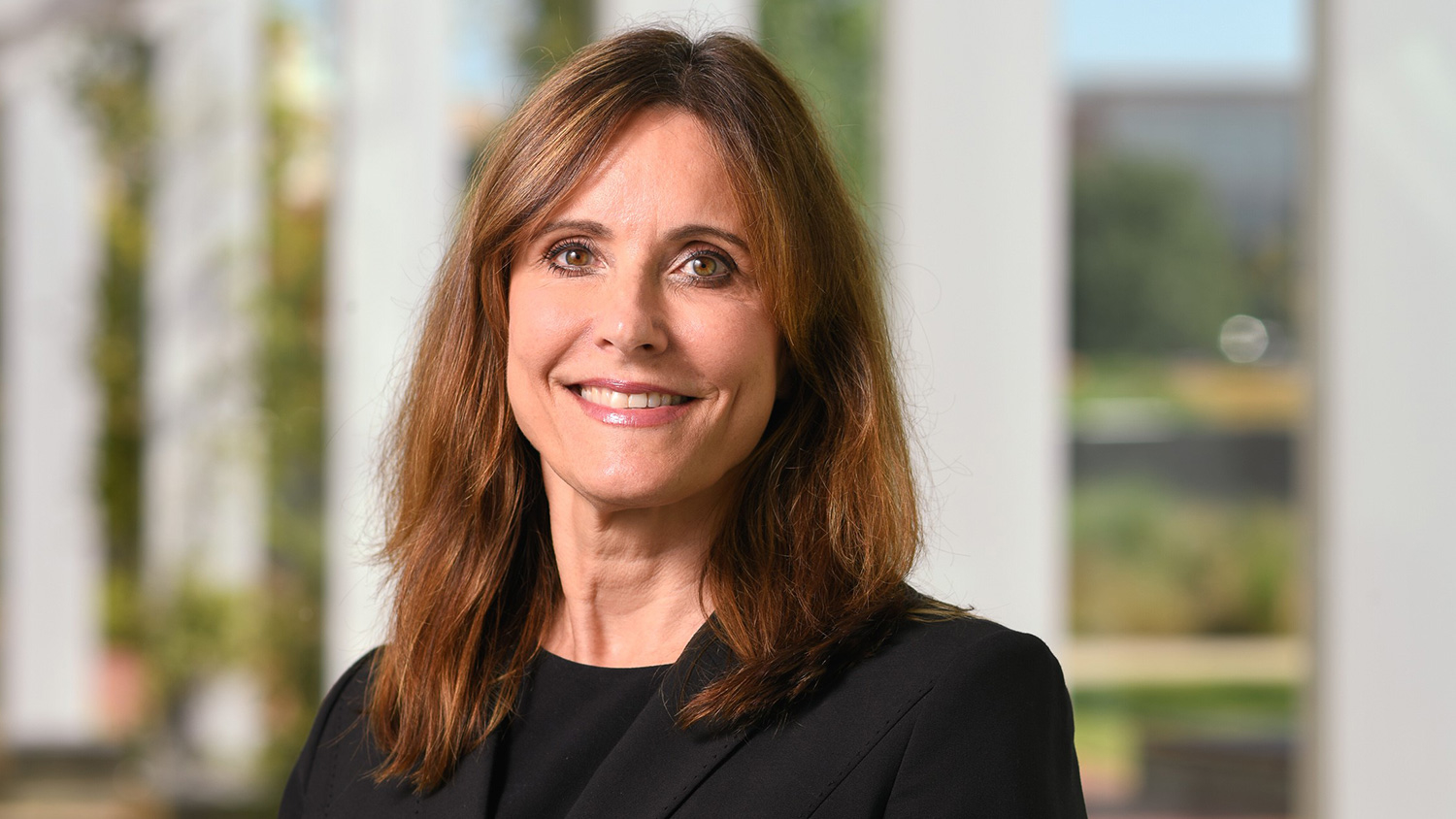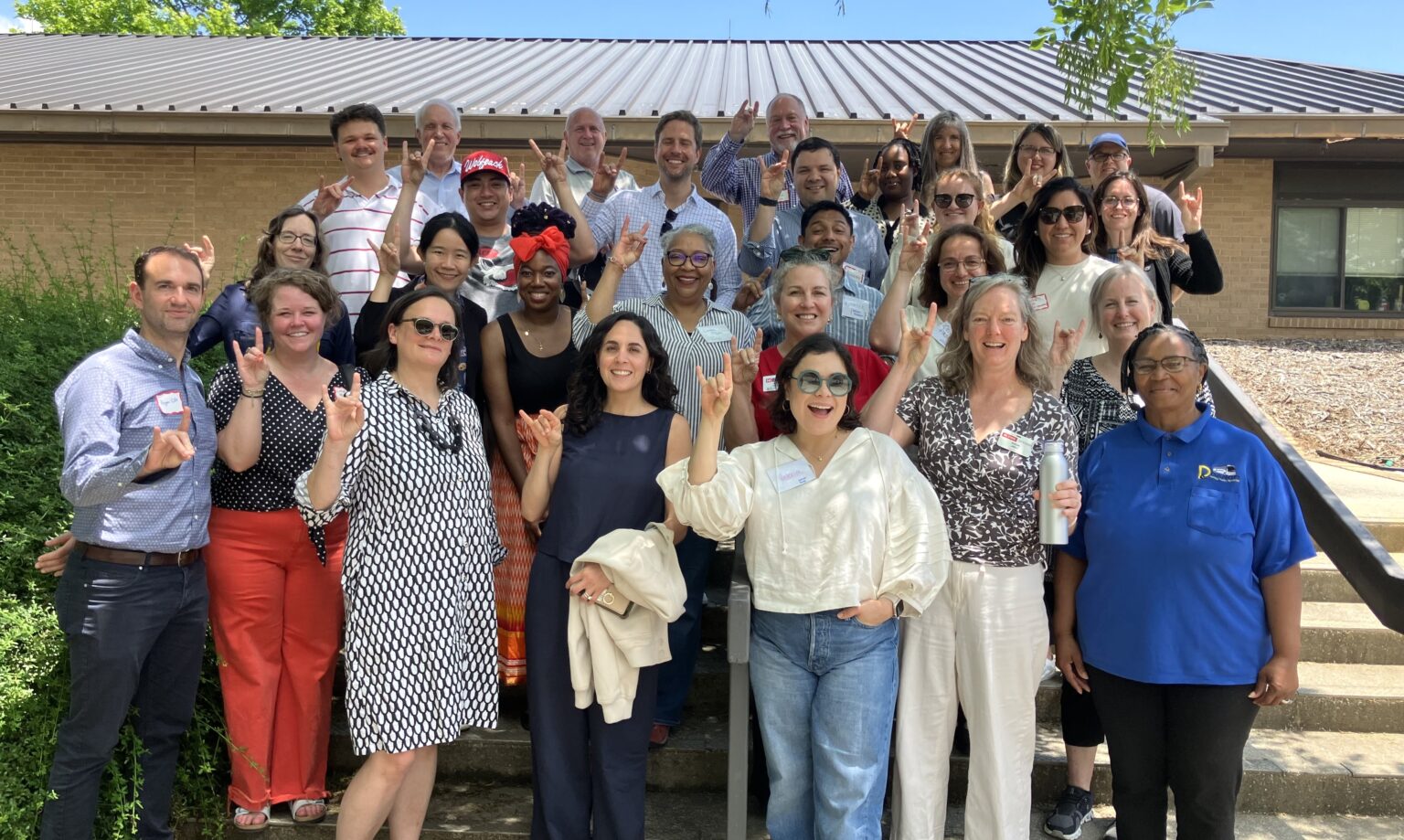Over the past 20+ years, SCRC executive advisor Carol Kozar has held executive leadership positions at IBM, RTI, and SAS. In this interview, learn what motivated her to also get involved with helping students working on client projects at NC State, and what she does in that role to ensure those students succeed.
Carol Kozar
What is your professional background?
I have had the opportunity to work at a number of great organizations (i.e., Abbott Labs, IBM, RTI and SAS). I started off my career in technical marketing, helping sales representatives solve customer problems. I eventually tried my hand at sales. It was while in sales that I became curious about contract law. As a sales representative I would negotiate sales and complete contract templates which then needed to be reviewed and approved by legal. I felt like I was submitting my draft contracts into a “black box” that would spit out finalized approved contracts. I wanted to know what happened inside that black box, so I decided to go to law school. While in law school I did a project on internet service provider liability at a time when AOL and other service providers were growing rapidly. After graduating law school, IBM was looking for someone to help negotiate with internet service providers and because of that project I was hired. In addition, IBM was willing to pay for me to go back to school on weekends and get my Executive MBA. IBM gave me my start in procurement and I have been in procurement/supply chain ever since.
What has been the highlight of your career?
When I was young I thought you went to college to help get a job. I did not realize that getting my undergraduate degree was just the start of my adult education. If you asked me when I graduated from Brown University with a degree in applied math/economics if I would one day go to law school and become an attorney I would have laughed at you. But the more you know the better equipped you become to help others solve problems. The biggest highlight of my career is that education has become a constant — I am growing all the time and have become a lifelong learner. And, it is because of my curiosity and desire to help others that I have taken on the role of practicum project advisor.
[marketing-quote color=’blue’ quotes=’true’ align=’right’ source=”]I am not there to work on the project, just as a coach does not participate in the game, but rather I am there to give insight, encouragement and inspiration to the students.[/marketing-quote]
Can you describe your role as a practicum project advisor?
As a practicum project advisor, I see myself as a project coach. I work with the students and help them develop a project scope that achieves the sponsor company’s objectives. I then meet with the students on a weekly basis to ensure the project remains on track and ultimately meets or exceeds the sponsor company’s expectations. I am not there to work on the project, just as a coach does not participate in the game, but rather I am there to give insight, encouragement and inspiration to the students. In addition, should the students, project or sponsor get off track, I am there is help them navigate their way back. Ultimately my role is to ensure both the students and sponsor company have a successful experience.
How did you hear about the executive advisor opportunity, and what made you decide to share your knowledge and expertise with students?
A few years ago Tracy Freeman reached out to me through LinkedIn on another topic. We talked a few times and I got to know her and learn more about the SCRC executive advisor role. Most of the advisors were retired executives. At the time I had two children in high school and was working full-time. However once again my curiosity pushed me and I followed up with Tracy regarding the role. Fortunately throughout my career I have had many amazing mentors. Here was an opportunity for me to give back to others. Conversely, I learn from the projects as well. It is a perfect way to help others and grow at the same time.
Can you give a brief overview of the project(s) you are advising this semester?
This semester I am advising on two projects. One team is working on creating a multi-year roadmap and business case for the sponsor company to improve their solid waste management disposal and achieve zero waste to landfill by 2025. The other team has been asked to assess the sponsor company’s current procurement responsible sourcing program. The students are researching best in class programs and will then make recommendations for future state design. The sponsor company wants to use this information to back up investment recommendations for the resources required to manage a best in class responsible sourcing program.
What challenges do you often find students facing when working on their projects? What do you advise them to do?
The projects can be intimidating at first. Generally the project involves research and data gathering in the beginning. One of the first assignments involves putting together a project scope including a description of the final deliverables. This scope documents needs to be completed and approved before the research and date gathering has been completed. The sponsor needs to review and signoff on this scope document. Thinking through the project and putting together the project scope is one of the hardest assignments. Students should view this first assignment as a contract with the sponsor company that they are committing to fulfill by the end of the semester.
Why would you recommend taking a practicum course to students? What do you think is the most valuable skill or opportunity gained by completing a practicum project?
The practicum projects are great opportunities for the students to work on skills that they do not consider their strengths. If a student does not like to lead meetings, then at least for some of the meetings, the student should take the lead. If the student is not good at presentations, then the student should ensure he or she presents at both the midterm and final client presentations. These are safe environments and students have their teams and advisors to help them improve.
What advice would you offer to students to help them become better candidates for professional positions or graduate school?
Getting good grades is important. However companies or graduate schools want to see how you apply what you have learned. Students that participate in practicum projects have experience/examples that can be utilized to answer interview questions or include in resumes and college applications. If you have an opportunity to take practicum courses then I encourage you to do so.
In your free time, what do you enjoy doing? Do you have any special skills or talents?
Aside from spending time with my family, attending my daughter’s athletic events or taking care of our very small farm, I like to bike ride. I enjoy both road riding and trail riding. My favorite time of year is fall when you can ride through Umstead Park and listen to the leaves crunching underneath your wheels while flashes of color pass through your peripheral vision.
Click here to learn more about Carol, or connect with her on LinkedIn.
This post was originally published in Supply Chain Resource Cooperative.
- Categories:



